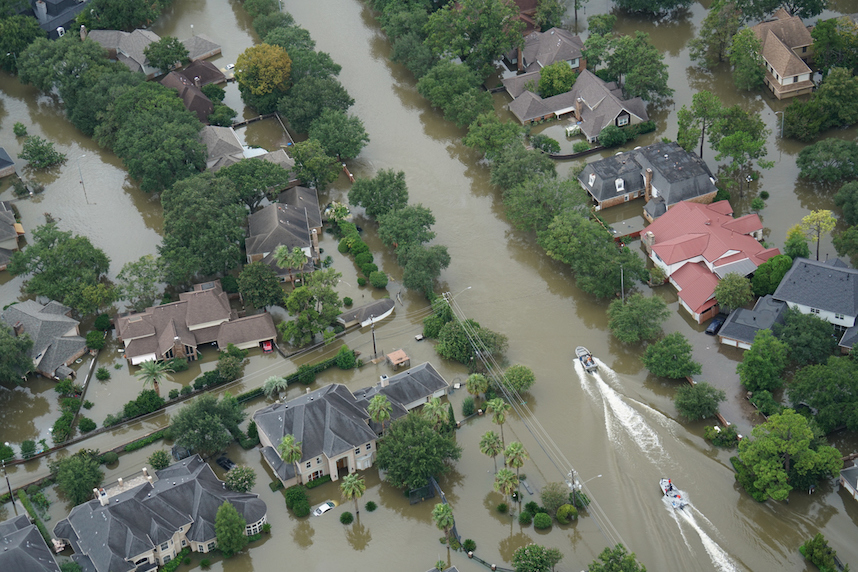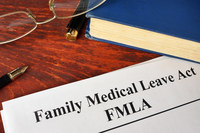FMLA News
Employer Knowledge is Key to Avoiding FMLA Lawsuits
Sacramento, CA: It’s hard to fathom that the number of lawsuits over denied family and medical leave were found to be increasing last year, even though statutes such as the Family and Medical Leave Act (FMLA) and the California Family Rights Act (CFRA) have been around for years.
FMLA Lawsuits Can be Prevented
Sacramento, CA: It’s a sad commentary on the preparedness of employers that there are so many instances of litigation surrounding the federal Family and Medical Leave Act (FMLA), and the state-centric California Family Rights Act (CFRA) given the wealth and breadth of knowledge available. An employer well-versed and conversant on the Acts, and the respective relationships between the two, can easily prevent an FMLA lawsuit from occurring. What’s more, the latest information is readily available to Human Resources Departments (HR) as well as the public at large.
And yet, according to the
It doesn’t have to be this way. The California Chamber itself provides excellent information on the subject, as well as the state government. Given the availability of this information to the general public, as well as online calculators provided by the State of California for the computing of benefits, an employee reasonably versed in the subject will already know his, or her rights when approaching an employer with a request for leave.
Were that request to be met with a resounding ‘no,’ the employee probably has a good idea about how to respond.
The federal FMLA has been around for some time, and provides qualifying employees with a window of leave for certain situations – most having to do with personal or familial illness, bonding with a newborn child, or other family-related health crises.
A number of states have also enacted state-centric Acts that serve to function as an adjunct to the FMLA, and California is no exception. The California Family Rights Act (CFRA) largely takes its cue from the federal FMLA, with one primary difference: whereas FMLA leave is not paid leave, the CFRA provides for compensation according to various qualifying criteria. This helps the employee to pay the bills and keep his, or her respective head above water financially while away on leave for an approved purpose.
As an example, a new father having met all the criteria and having earned a monthly, pre-tax income of $4,000 per month across an 18-month window would qualify for a weekly benefit of $508, or about half of his stated monthly earnings, for the duration of his leave.
The applicant, according to state guidelines must have welcomed a new child into the family in the past 12 months either through a partner’s pregnancy, adoption, or foster care; have paid into State Disability Insurance (noted as “SDI” on pay stubs) in the past 5 to 18 months; and not have taken the maximum six weeks of paid family leave in the past 12 months.
The paid leave, for this purpose, is identified as six weeks in duration. The time does not have to be taken all at once, but can be broken up. Applicants can easily go online and pursue more detailed eligibility criteria for CFRA leave to care for a seriously ill child, a parent, parent-in-law, grandparent, grandchild, spouse, registered domestic partner, or to bond with a new child coming into the family.
Such information is also available to the employer, from a number of sources including the California Chamber of Commerce, or CalChamber, who say that requests for leave represent one of the most frequent requests made to the Human Resources Department of a qualifying employer.
At the same time, CalChamber says, the most common error made by employers and their HR departments is failure to grant legitimate requests for family and medical leave as required by federal (FMLA) and State (CFRA) laws.
To be fair, the relationship between CFRA and FMLA is not necessarily a simple one. In most situations the two Acts run concurrently and seamlessly, but not in all things. There are some instances where the Acts overlap, says CalChamber. In other circumstances, it is better to trigger a request through either FMLA or CFRA, but not both.
Sometimes, there are conflicts.
To that end it requires due diligence on the part of the Human Resources Department of a qualifying employer to remain conversant with all aspects of federal and state leave, in order to be in the best position possible to both guide the employee making a request for leave, and to ensure compliance in order to prevent a needless FMLA lawsuit.
As for the employee who comes up against roadblocks to a legitimate request for leave, the retention of a qualified attorney expert in the various nuances of CFLA and CFRA is prudent to ensure a legitimate request for leave is taken seriously, and duly honored.
In the Wake of Natural Disasters, Employers Urged to Have Empathy
Sacramento, CA: The devastation to Texas, and in particular Houston in the wake of Hurricane Harvey together with the death and destruction wrought by Hurricane Irma serves as a reminder to all employers that hardship which follows such a disaster can trigger a request for leave under the Family and Medical Leave Act (FMLA). And while California is not generally exposed to the ferocity of hurricanes, other disasters such as droughts and wildfires can lead to crises and hardship equally horrific.
FMLA and CFRA is a Complex Relationship Requiring Expert Advice
Sacramento, CA: Few would argue that while the federally-regulated Family Medical Leave Act (FMLA) and its State counterpart The California Family Rights Act (CFRA) go to great lengths in guaranteeing certain rights and protections for workers who are themselves ill or have responsibility for a sick or injured family member, the interaction of the two can be complex. And while pundits observe that claims and lawsuits within the FMLA and CFRA are increasing, so too are the cautions that such regulations are complex and require the expert services of a qualified attorney to wade through the quagmire.
Know Your Rights under the California Family Rights Act
Berkley, CA: Tom Spiggle is an attorney and author of You’re Pregnant? You’re Fired: Protecting Mothers, Fathers, and Other Caregivers in the Workplace. In a blog originally appearing last year and updated last month in Huff Post (06/15/17), Spiggle notes that various protections at both the federal and state level that help insulate workers from discrimination (such as the federal Family Medical Leave Act and the California Family Rights Act) are valuable tools for the protection of worker rights. At the same time, however such a patchwork of protections crossing various jurisdictions can inject a high level of complexity into the mix.
An Informed Employer Can Often Avoid an FMLA Lawsuit
Sacramento, CA: Employers based in California and who employ 50 or more workers face an extended basket of regulations through the California Family Rights Act (CFRA), which augments the federal Family and Medical Leave Act (FMLA). Thus, anyone filing an FMLA lawsuit in the state of California benefits from extended protections through the CFRA. And yet, notes the California Chamber of Commerce (CalChamber), there are, in some cases overlapping and conflicting tenets resulting from the conjoined Acts.
Former Television Executive Files Lawsuit, Alleges FMLA Violations et al
Los Angeles, CA: A former executive with Black Entertainment Television (BET) in Los Angeles has filed an 18-count wrongful dismissal lawsuit against BET and parent company Viacom Inc. Amongst the allegations are charges of discrimination, gender bias and violations against the Family and Medical Leave Act.
Latest Revision to California Family Rights Act Goes to Committee April 24
Sacramento, CA: We are just beyond the one-year anniversary of an expansion to the California Family Rights Act, or CFRA, that was first brought in 16 years ago.
Federal FMLA Bill Tries for a Second Time, Mirrors California FMLA
Los Angeles, CA: Federal legislation that hopes to mirror rights for family and medical leave currently observed by California and one other state, has been proposed by Democratic lawmakers in the Congress. The Family and Medical Leave Act was introduced previously, but was not successful in passing through Congress and thus never made it to the desk of then-President Barak Obama in 2013, when the Bill was first proposed. This time, Representative Rosa DeLauro (D-Conn.), and 113 co-sponsors reintroduced the House Bill, while Senator Kirsten Gillibrand (D-N.Y.) reintroduced its companion legislation in the US Senate.
California Could Expand Parental Leave
Sacramento, CA: California is looking to expand parental leave laws to require smaller businesses to provide parental leave to employees. If approved, the law would require employers with 20 to 49 employees to provide parental leave to employees. Current law only requires companies with 50 or more employees to provide parental leave.
About . TOS . Privacy . Disclaimer . Contact . Advertise . Member Login
This work is licensed under a Creative Commons Attribution-NoDerivs 3.0 Unported License ©2025 Online Legal Media. All rights reserved.
Visit other Online Legal Media Websites:

















